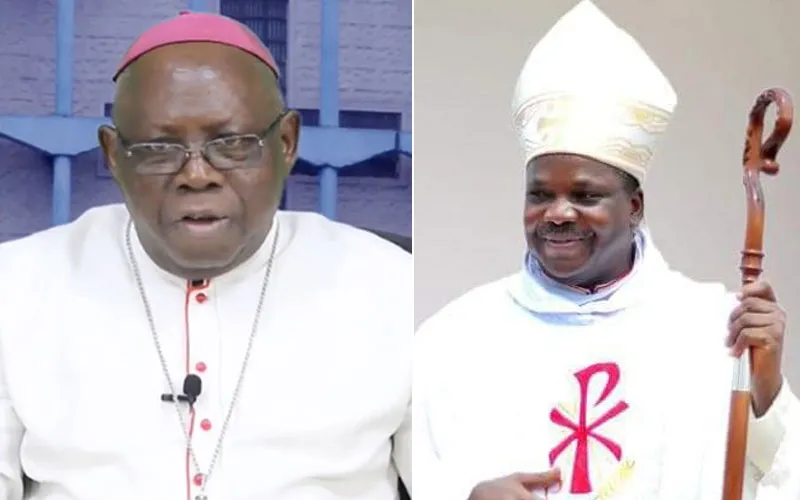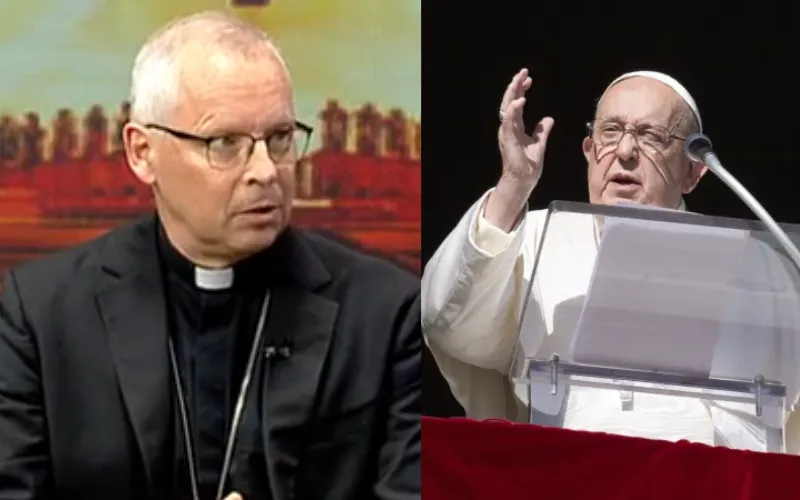The 61-year-old Nigerian Church leader who was appointed member of the Vatican Dicastery for Communication in December 2021 says that he finds it regrettable that President Muhammadu Buhari’s government has formulated a task force to make petrol available, a task force he says will just deteriorate the country’s financial situation.
“This typically Nigerian style of throwing stones at a charging lion is hardly surprising! What about those whose job it was to make petrol available in the first place? Now we have a committee that will spend more money to redress our already monumental loss of money,” he says.
According to Bishop Badejo, the 100-day period given to switch from old notes to the new currency notes is not enough.
“President Muhammadu Buhari’s declaration that 100 day-period is more than sufficient for the public to change the old currencies to new ones is easy to make when you live in Aso Rock and get bales of new notes thrown at you at your beck and call,” he says.
Bishop Badejo says that the 100-day ultimatum shows that the Nigerian President “does not seem to know anything about the alarming incompetence and insensitivity which the banking system has shown in getting those new notes to members of the public who wish to get them.”
(Story continues below)
He says the current timeframe is made impossible because of the skyrocketing price of goods and services and the 2023 general elections that have subjected the struggling masses to anger and frustration.
With all the frustrations and anger as manifested by Nigerians, the Catholic Bishop who started his Episcopal Ministry in October 2007 as Coadjutor Bishop of Oyo Diocese says, “How then will the elections be free and fair? Is there a sinister plan hidden somewhere behind all this?”
Bishop Badejo urges the Nigerian government to “react quickly to the current hard times to avoid public revolt and chaos.”
“If the monetary policy is hurting the same people which it is intended to serve, why can’t some modification be made to its timing and execution,” he says, and adds, “Do our leaders need to be reminded that the power of the people will always outlast the people in power? A day of judgment will surely come!”
The Catholic Bishop says that for a government to have what he referred to as “a human face, " its policies must be formulated for the good of the people.
“In executing even, the best and most urgent policies, the people’s interest, not party ego or selfish plans must be at the center of honest governance. Government and public officials in a democracy are public servants, not slave drivers. That is what it means for governance to have a human face,” Bishop Badejo says in his message shared with ACI Africa January 27.
On his part, Archbishop Abegunrin who was addressing the International Colloquium for the 700th anniversary of the Canonization of St. Thomas Aquinas on January 25 said that the changing of Naira notes in not in the interest of ordinary Nigerians.
“I thought our new Naira note will be of good value, but it is less in value the way I look at it because it is not interesting, it is not fascinating, maybe they know why they changed it,” the Local Ordinary of the Catholic Archdiocese of Ibadan in Nigeria said during the event held at Dominican University in the Archdiocese of Ibadan.
The new Naira notes are “a disappointment but Nigeria has nothing to do as it is already in circulation though not fully out,” the Nigerian Archbishop said at the January 25-26 event that was organized under the theme, “Stop the war, make peace”.
Reflecting on the theme of the colloquium, Archbishop Abegunrin described Africa’s most populous nation as a country replete with multiple other wars that it has to deal with besides the insecurity crisis.
“When we say stop the war, many people will think we are talking about Boko Haram, banditry and all that; I think it is far more than that,” the Nigerian Archbishop who has been at the helm of Ibadan Archdiocese since January 2014 said.
He explained, “There is still war in the world even in the family; anything that disturbs the peace in the world is war.”
“I think the call to stop the war is for all of us when we talk about preaching the gospel,” Archbishop Abegunrin said, and underscored the need to foster peaceful coexistence in all sectors of society, both private and public.
Silas Mwale Isenjia is a Kenyan journalist with a great zeal and interest for Catholic Church related communication. He holds a Bachelor’s Degree in Linguistics, Media and Communication from Moi University in Kenya. Silas has vast experience in the Media production industry. He currently works as a Journalist for ACI Africa.








